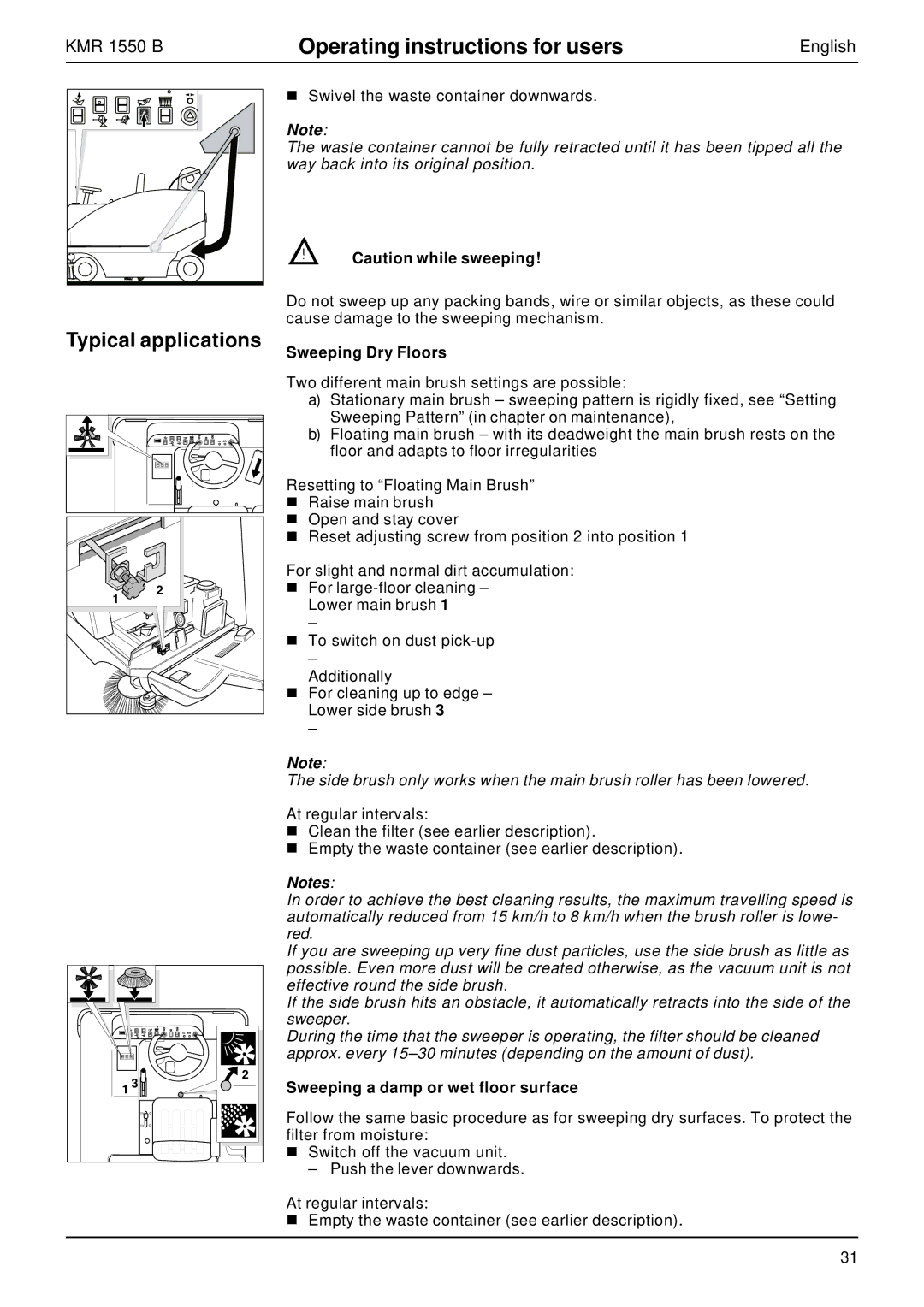KMR 1550 B specifications
The Kärcher KMR 1550 B is an innovative and powerful ride-on sweeper designed for efficient cleaning in various environments, including indoor and outdoor surfaces. This machine combines advanced technology with user-friendly features, making it an ideal solution for both commercial and industrial applications.One of the standout features of the KMR 1550 B is its robust and efficient cleaning system. The sweeper is equipped with dual side brushes that ensure thorough cleaning along edges and walls, while the main roller brush efficiently picks up larger debris. The combination of these brushes allows for effective sweeping of a wide range of materials, including dust, dirt, and leaves, ensuring a pristine environment.
The KMR 1550 B operates using a powerful, battery-powered electric drive, making it an eco-friendly choice for users conscious of their environmental impact. The machine provides quiet operation, allowing for use in noise-sensitive areas without disruption. With its impressive battery life, the sweeper can run for hours on a single charge, maximizing productivity and minimizing downtime.
Another key characteristic of the KMR 1550 B is its ergonomic design. The spacious driver's seat is adjustable, ensuring comfort for operators of varying heights. The intuitive control system allows users to easily maneuver the machine, while the compact size ensures it can navigate tight spaces with ease. Safety features, such as automatic braking and visibility-enhancing lights, further enhance the user experience.
Additionally, the KMR 1550 B boasts a large debris hopper, which reduces the frequency of emptying and allows for longer cleaning intervals. This feature is especially beneficial in large areas where continuous operation is necessary. The hopper can be easily emptied from the driver's seat, streamlining the cleaning process.
Maintenance is straightforward with the KMR 1550 B, as Kärcher designed it with accessibility in mind. Regular maintenance points are easy to reach, ensuring that the machine remains in optimal condition for maximum performance over time.
In summary, the Kärcher KMR 1550 B is a versatile and efficient ride-on sweeper that combines advanced technologies with practical features. Its powerful cleaning capabilities, eco-friendly operation, ergonomic design, and ease of maintenance make it an excellent choice for anyone seeking a reliable solution for their cleaning needs.

